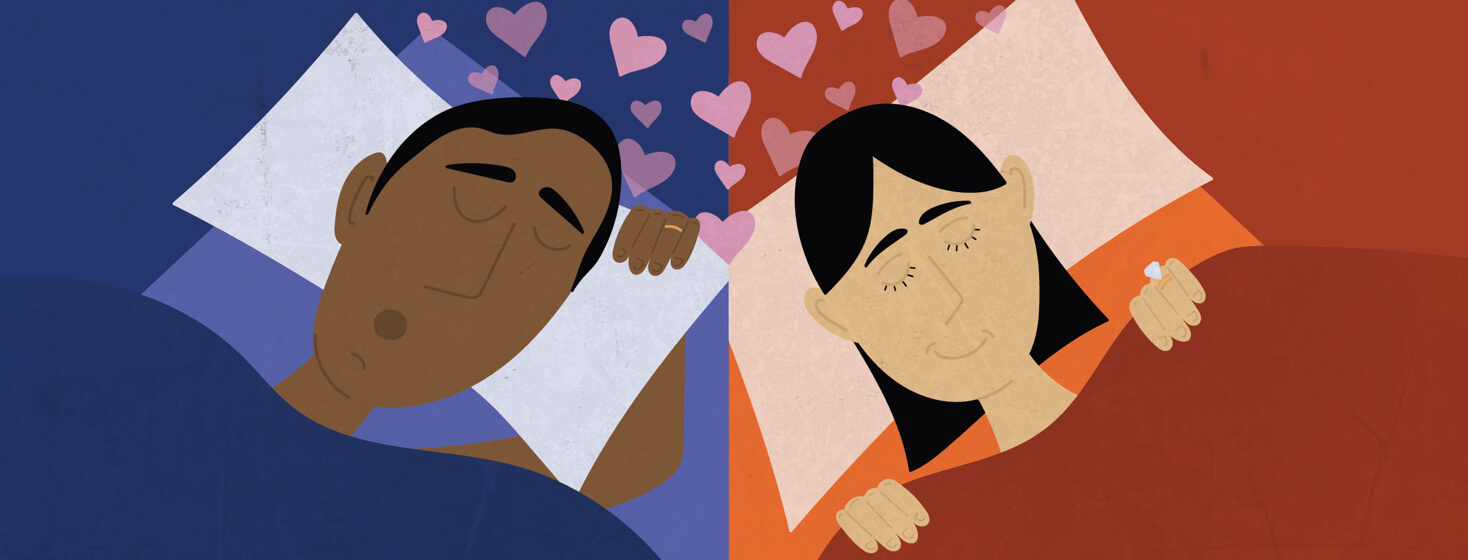A Case for Separate Bedrooms and Better Sleep
There is a belief that your marriage is in trouble if you sleep in separate beds or rooms but, that is not always the case. I know it certainly is not the case for my husband and me. We have been married for over 36 years.
How we ended up in separate rooms
My husband and I started sleeping in separate rooms off and on back in the 1980s. At the time we started, I was working a lot of rotating shifts. It was easier and better for me to sleep in a different room, the one farthest away from the phone. (Remember when we didn’t have cell phones and everyone had a landline?)
Then in 1996, I had a bad car accident. I then moved into the spare room since the bed and room were easier to get in and out of because I was using a wheelchair at the time. I ended up never moving out of the spare room as we both discovered we slept much better apart.
Benefits of sleeping in separate bedrooms
Here are some benefits we found to sleeping apart:
- No more worrying about a bed hog. Honestly, there was a constant struggle, even in a king-size bed, for who was taking up the most room. Not anymore.
- No more fighting over covers. Just like the bed hog problem, the cover hog problem went magically away. (Admittedly, there has been much debate over the guilty party in both cases.)
- Different shifts? No problem. You no longer need to worry about waking up the other person on a different shift with your alarm and your sleep/wake schedule.
- Different tastes in bed firmness? Not an issue. I like a firm bed; my husband likes one that is very soft. We both get our way now.
- No cold feet up against you. How many times has your bed partner slipped their cold feet up against you to warm up? Not a problem any longer either. (OK, I was the guilty partner on this one, but my husband no longer needs to deal with me doing that.)
- The room temperature is just how I like it. No need to compromise on that. I like my bedroom cooler than my husband does.
- The other person tossing and turning or making other noises waking you up also goes away.
- You can stay up and read before bed and not worry that the light is bothering your partner.
- If you’re a morning lark and your partner is a night owl, no need to worry that your different circadian rhythms don’t match.
More comfort and better sleep
Those are just a few of the benefits we found. Let’s face it, none of that has anything to do with if you love the other person or with intimacy. It’s all about comfort and getting a good night’s sleep. The better you sleep, the better your mood, the less stress you carry, and the more tolerant you are about all the little things that we each do that drive the other crazy.
We also know that poor sleep can aggravate any pre-existing physical or mental conditions. (Who wants that?!) Plus, sometimes, it’s nice to have your own room with things set up the way you like it. A quiet place to meditate and think.
Do what works for you
It is not uncommon for some couples to sleep in separate rooms. In some countries outside of the United States, it’s considered normal. (Queen Elizabeth and Prince Phillip had a very long loving marriage and had separate rooms.)
To each their own, I say. If you and your significant other find you sleep better in different beds or even different rooms, go for it. Do what works for both of you.
Tell us about your bedroom story and share a comment.

Join the conversation